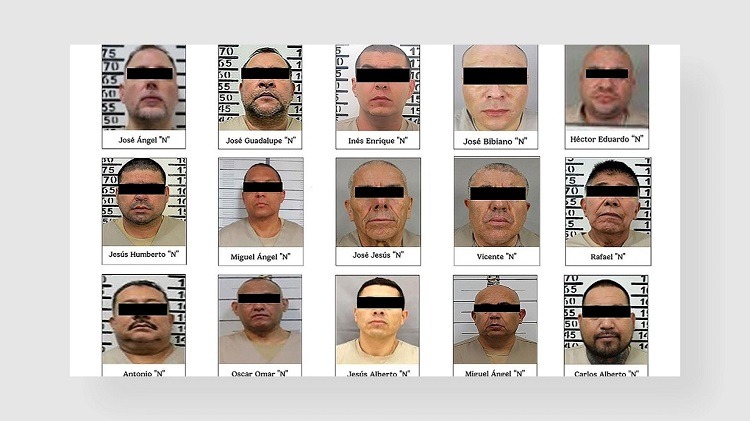
Mexico Extradites 29 Alleged Drug Traffickers to the U.S.: A Major Blow to Cartels?
Introduction In a significant move against transnational crime, Mexico has extradited 29 suspected drug traffickers to the United States, including high-profile cartel leaders. This extradition marks one of the largest coordinated efforts between the two nations in recent years and signals an intensification of the fight against drug smuggling, particularly fentanyl trafficking, which has been a major concern for U.S. authorities.
Background on U.S.-Mexico Drug Trafficking The United States and Mexico have long struggled with the challenges of cross-border drug trafficking. Mexican cartels, including the Sinaloa Cartel and Jalisco New Generation Cartel (CJNG), are responsible for much of the illegal narcotics trade flowing into the U.S. Over the years, these cartels have expanded their influence, relying on corruption, violence, and sophisticated smuggling techniques to move drugs, particularly fentanyl, heroin, and methamphetamine, into American markets.
The Significance of This Extradition The extradition of these 29 individuals, including notorious figures such as Rafael Caro Quintero and Vicente Carrillo, underscores Mexico’s commitment to cooperating with U.S. law enforcement. This move is seen as a response to increased U.S. pressure to crack down on cartel operations and disrupt the supply chain of deadly substances like fentanyl, which has contributed to an alarming rise in overdose deaths in the U.S.
Notable Figures Among the Extradited
- Rafael Caro Quintero: A legendary cartel leader responsible for the 1985 murder of DEA agent Enrique “Kiki” Camarena.
- Vicente Carrillo Fuentes: Former leader of the Juárez Cartel, known for brutal violence and rivalry with the Sinaloa Cartel.
- Other High-Ranking Members: Several mid-level cartel operatives linked to major smuggling routes into the U.S.
Implications for Cartels and Crime in Mexico While this mass extradition is a victory for law enforcement, it also raises concerns about cartel retaliation and internal power struggles. In the past, the removal of key leaders has led to violent conflicts between rival factions as they vie for control of lucrative drug routes. Moreover, Mexico faces challenges in maintaining law and order, with many regions still plagued by cartel influence despite government crackdowns.
The U.S. Response and Next Steps The Biden administration and law enforcement agencies such as the DEA and FBI have welcomed this extradition, seeing it as a crucial step in dismantling cartel networks. The extradited individuals will now face trial in U.S. courts, where they will likely receive lengthy sentences if convicted. Moving forward, both countries are expected to enhance joint operations, intelligence-sharing, and border security measures to further curb drug trafficking.
Conclusion The extradition of 29 alleged drug traffickers from Mexico to the U.S. marks a turning point in the fight against organized crime. While it represents progress, the battle against drug cartels remains far from over. The long-term impact of this move will depend on continued international cooperation, judicial outcomes, and efforts to address the root causes of drug trafficking, including corruption and economic instability in Mexico.


